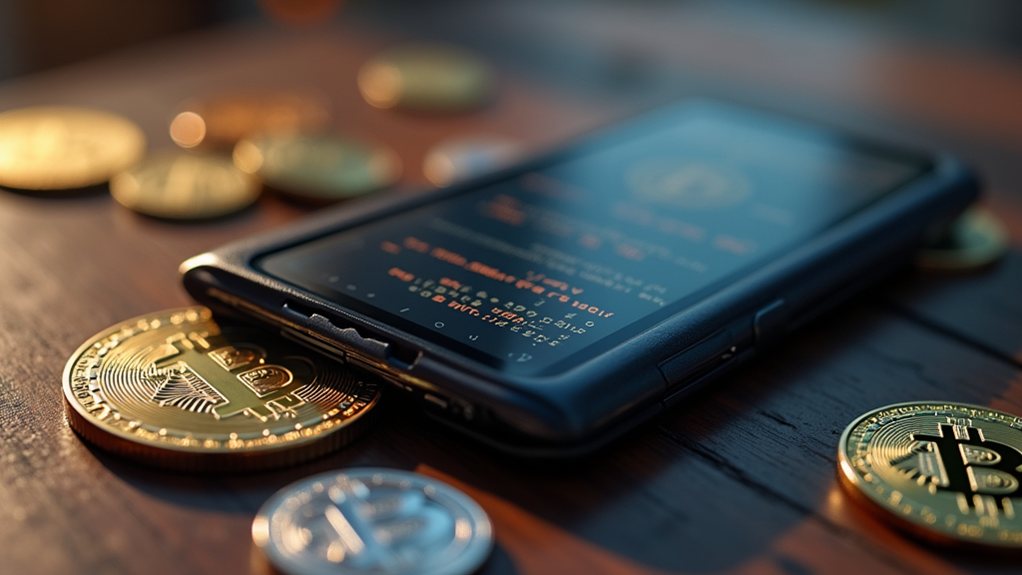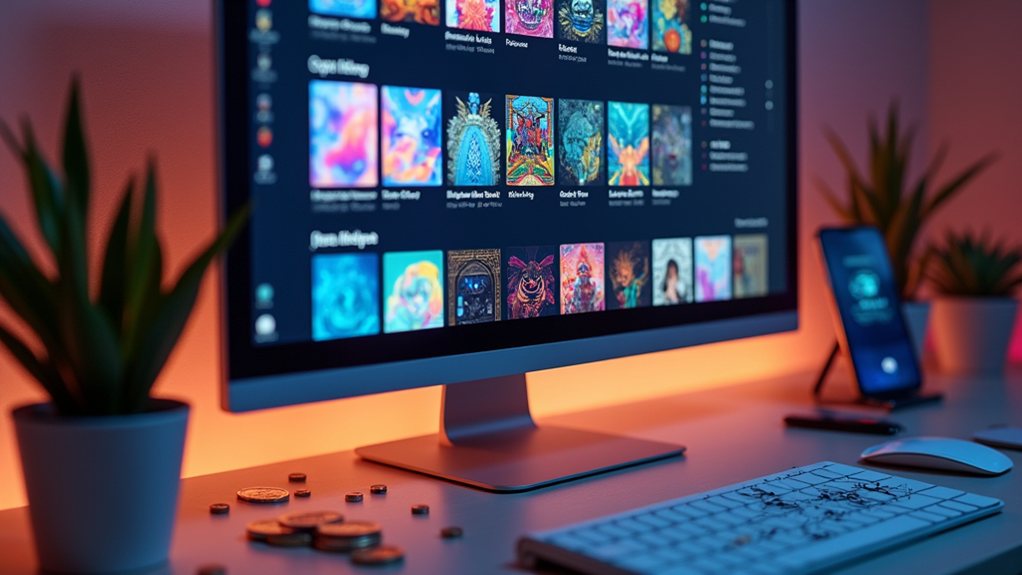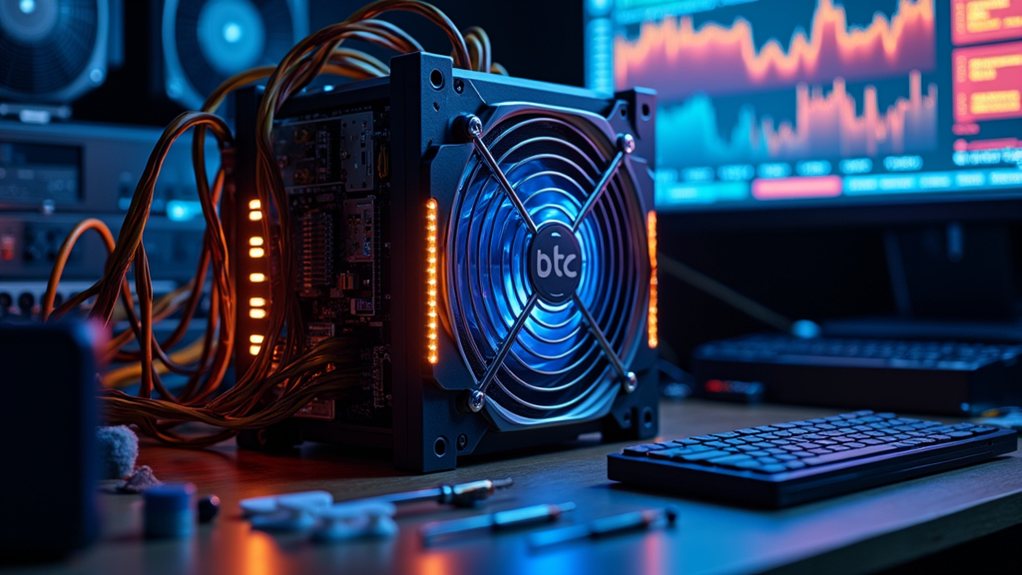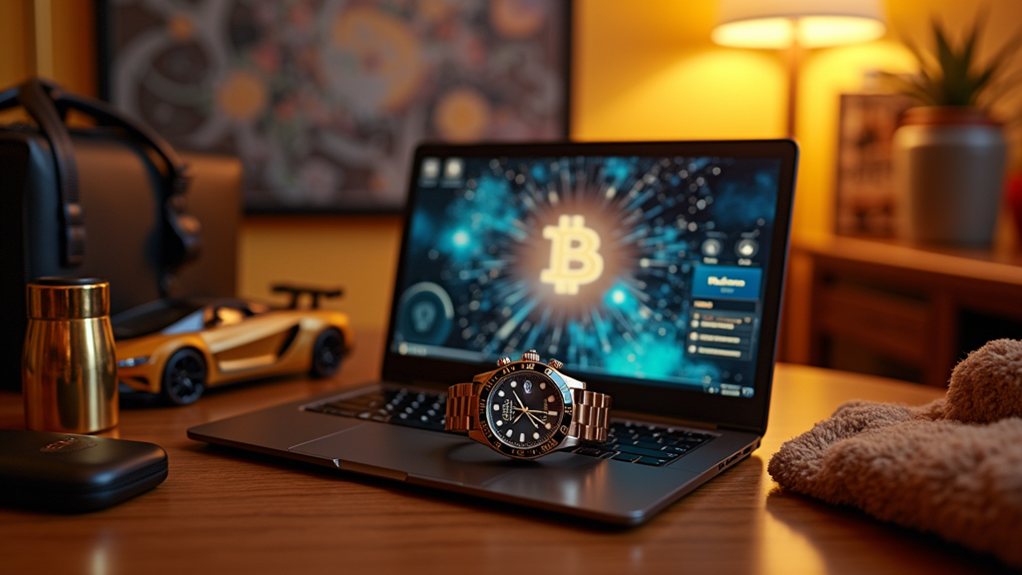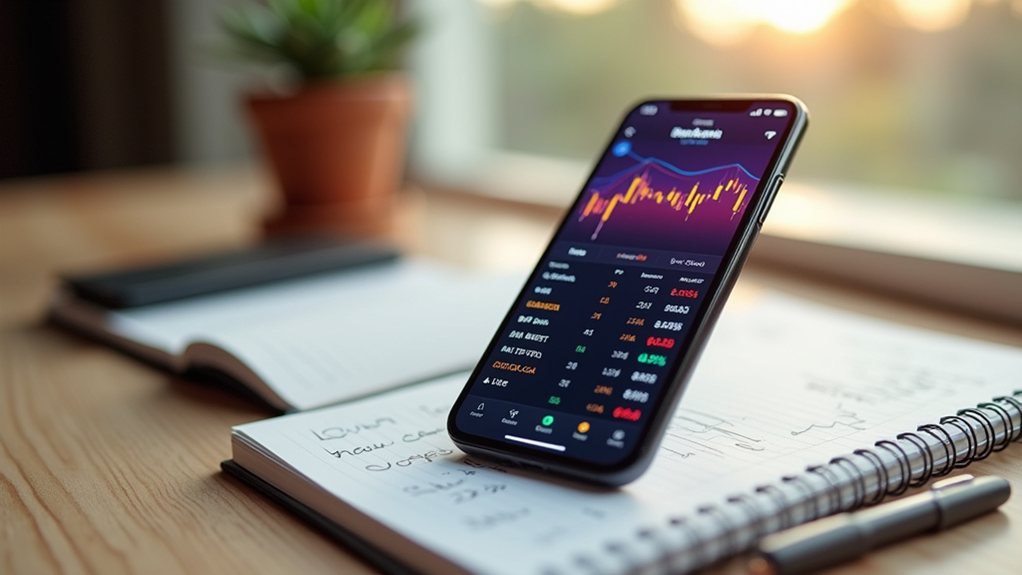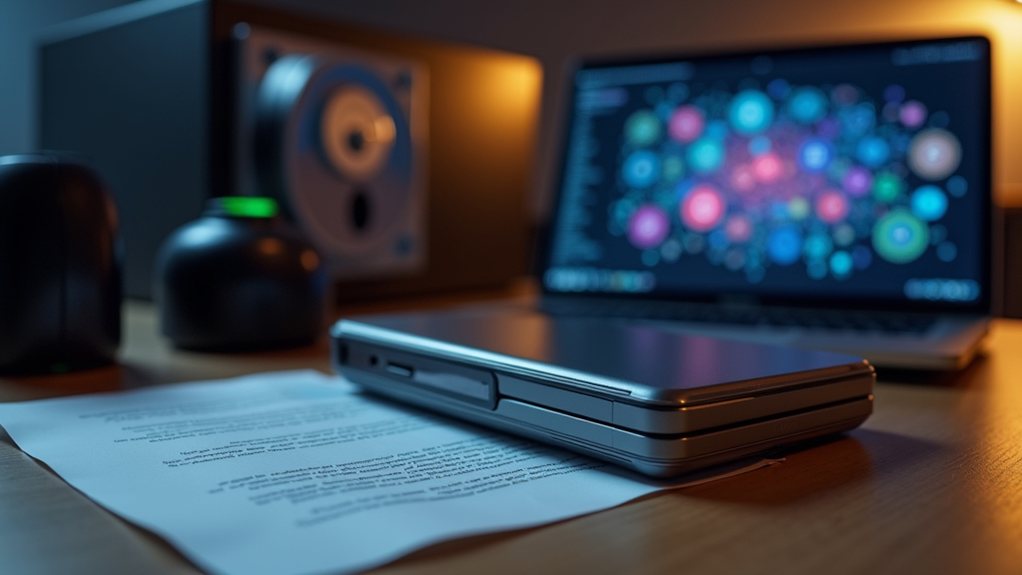Noncustodial wallets give users complete control over their cryptocurrency. No middlemen involved. Users hold their private keys—digital signatures that grant access to blockchain funds. Think hardware devices like Ledger, mobile apps, or even paper documents with printed codes. Great power, serious responsibility. Lose your recovery phrase? Kiss your crypto goodbye. No customer service hotline to bail you out. The blockchain doesn't care about your sob story. The deeper implications might surprise you.
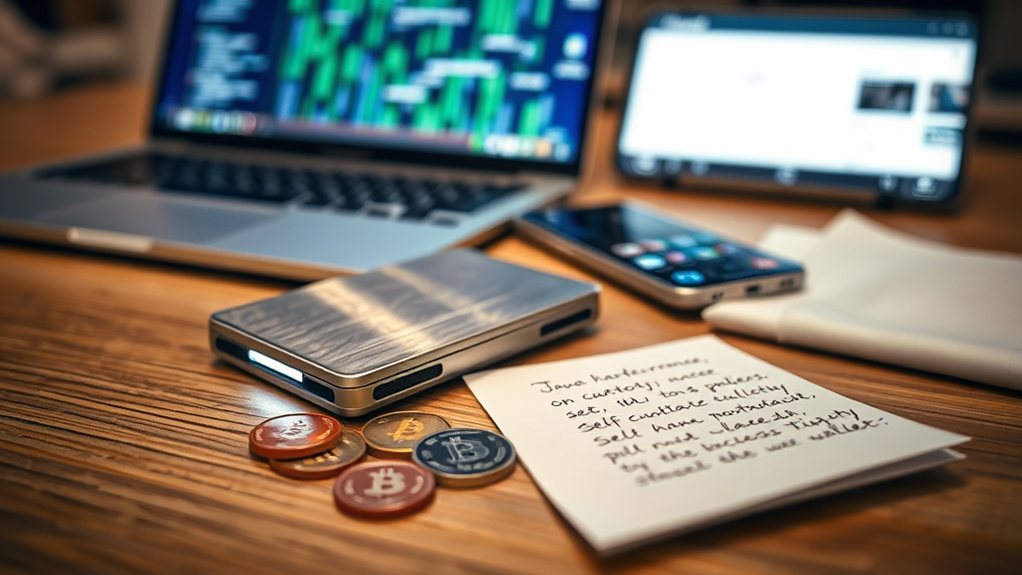
While cryptocurrency exchanges offer convenience, they come with a significant trade-off: control. When you store crypto on an exchange, someone else holds your keys. Not ideal. This is where noncustodial wallets enter the picture – they put you back in charge of your digital assets without any third-party involvement.
Noncustodial wallets, also called self-hosted wallets, give users complete ownership over their cryptocurrency. You control the private keys – those secret codes that grant access to your funds on the blockchain. No middlemen. No permission needed to move your money. Your crypto, your rules.
Self-sovereignty in your pocket. Your keys, your crypto, your freedom – exactly as blockchain was intended.
These wallets come in various forms. Hardware wallets like Ledger and Trezor provide cold storage, keeping your keys offline and away from potential hackers. Software wallets offer convenience but remain connected to the internet, making them slightly more vulnerable. Paper wallets are literally printed copies of your keys, while the somewhat questionable "brain wallets" rely on you memorizing your keys. Mobile options let you manage crypto on your smartphone.
The technical side is straightforward. Noncustodial wallets interact directly with the blockchain, cutting out intermediaries entirely. They allow you to connect with decentralized applications, customize security settings, and maintain privacy that exchanges simply cannot offer. Pretty neat, right?
MetaMask, Exodus, and MyEtherWallet stand among the most popular options. Each offers slightly different features but shares the same fundamental principle – you're in charge. Period.
The benefits are compelling. Financial sovereignty means no one can freeze or seize your assets. Censorship resistance guarantees you can transact regardless of what governments or corporations might prefer. Lower fees, immediate access to funds, and support for multiple cryptocurrencies make these wallets practical for daily use. These wallets also employ cryptographic techniques to secure private keys, making them significantly more resistant to unauthorized access. Noncustodial wallets enable true peer-to-peer transactions without relying on intermediaries, aligning perfectly with blockchain's fundamental principles.
But it's not all sunshine and rainbows. Technical knowledge is required. You mess up, you're on your own. Lost your seed phrase? Tough luck – your funds are gone forever. Forever is a long time. There's no "forgot password" button in the world of self-custody. Customer support is minimal since there's no company managing your assets.
The responsibility falls entirely on the user. Back up your seed phrases. Use secure devices. Be vigilant about phishing attempts. One mistake could cost you everything.
Exchanges get hacked. Noncustodial wallets don't – they just get mismanaged by their owners. The security threat isn't some faceless hacker halfway across the world; it's user error. That's the trade-off: absolute control means absolute responsibility.
For those willing to take ownership, noncustodial wallets represent the purest form of the cryptocurrency ethos – financial independence without intermediaries. Creating backup copies of recovery phrases is essential since this represents your only method of regaining access should your primary device be lost or damaged. Just remember: with great power comes great responsibility.
Frequently Asked Questions
How Do I Recover My Wallet if I Lose My Seed Phrase?
Without the seed phrase, wallet recovery is nearly impossible. That's the whole point.
Hardware wallets offer some alternatives like PIN codes or multiple device verification. Social recovery methods using designated "guardians" are emerging options.
But realistically? Those funds are probably gone forever. Some services claim to help recover wallets for hefty fees. Their success rates? Abysmal.
The crypto world doesn't do forgiveness well.
Are Noncustodial Wallets Suitable for Beginners in Cryptocurrency?
Noncustodial wallets for beginners? It's complicated. They offer complete control over crypto assets—no third parties involved. Nice.
But they come with serious responsibility. Lose that seed phrase? Kiss your funds goodbye. Forever.
The learning curve is steeper than custodial alternatives. But hey, education has value.
Many modern noncustodial wallets feature user-friendly interfaces and support resources. Ultimate security comes with ultimate accountability. Not for everyone.
Which Noncustodial Wallets Integrate Best With Defi Platforms?
MetaMask dominates DeFi integration with direct dApp access and massive user base.
Trust Wallet's multi-chain support and built-in browser makes it versatile across 65+ blockchains.
Ledger Live offers security plus convenience through WalletConnect.
Crypto.com's DeFi Wallet covers 100+ blockchains with its Earn program.
They all offer token swaps.
Pick your poison based on chains you use.
Security or convenience? Can't always have both.
How Do Transaction Fees Compare Between Custodial and Noncustodial Wallets?
Transaction fees tell a simple story.
Custodial wallets hit users with higher fees—typically 0.1-0.5% per trade plus various service charges. They're predictable but pricey.
Non-custodial wallets only charge network fees, which fluctuate wildly based on blockchain congestion. Bitcoin might cost $1-$5, while Ethereum… well, those gas fees can make anyone cry during peak times.
The trade-off? Control versus convenience. That's crypto for you.
Can I Use a Noncustodial Wallet for Multiple Cryptocurrencies?
Yes, many non-custodial wallets support multiple cryptocurrencies simultaneously.
MetaMask, Trust Wallet, Exodus—they've got you covered. Some wallets handle over 100 different crypto assets across multiple blockchains.
Pretty convenient, right? One interface for your entire portfolio. No juggling between twenty different apps.
But watch out: not all wallets support every cryptocurrency, and you'll still need to manage security carefully. More assets, more responsibility.

